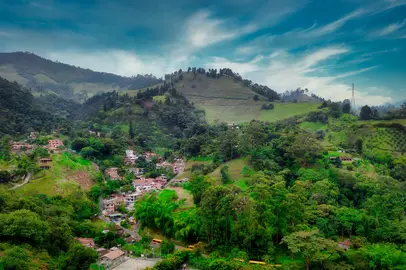Academia's role in integrating scientific and local knowledge to address environmental conflicts
April 05, 2023.
In a recent peer-reviewed journal publication, a multidisciplinary group of ZEF researchers critically explored the role of academia in co-producing knowledge on the complexities of environmental conflicts. The researchers departed from understanding environmental conflicts as complex social struggles over natural resources at the intersection of social, ecological, cultural, and political relations. The article discusses inter- and transdisciplinarity as epistemological approaches to address socio-ecological issues. The authors looked at six ZEF research projects carried out between 2015-2021 as case studies.
Challenges for inter- and transdisciplinary research
Whilst inter- and transdisciplinary approaches have become increasingly common in academia, a strong divide between disciplines with rigid boundaries persists. Inter- and transdisciplinary research projects benefit from crossfertilizing ideas and practices while opening inclusion channels for non-academic, lived experiences and knowledge of people at the local level. Knowledge production in inter- and transdisciplinary research often occurs in complex socio-political contexts that lack enabling spaces for knowledge exchange. Therefore, co-production of knowledge is, for a researcher, a balancing act of observing academic rigor on the one hand, and, on the other, ensuring stakeholder participation right from the start. The latter entails joint problem phrasing and conceptualizations (i.e., how ‘sustainability’ is understood) as well as team building efforts.
How to address environmental conflicts
This publication highlights why inter- and transdisciplinary approaches to understanding multifaceted environmental conflicts are important and which day-to-day challenges academic researchers face when applying them. The authors have come up with a couple of suggestions: Focus more on the conflict at stake than on the method at hand; Pay more attention to achieve a ‘research co-ownership’ with local stakeholders; At the grass-roots level, it is of fundamental ethical rigor that researchers avoid speaking for the communities; For decision-makers, it is essential to question the bureaucratic-administrative ‘machinery’ of truth-building.
Four main lessons on how to best integrate scientific and local knowledge to address environmental conflicts were derived from the analysis: (i) Dialogue between different types and (stake-)holders of knowledge needs trust; (ii) It is imperative to reflect on how profound participation of stakeholders and how genuine a knowledge co-creation strategy is; (iii) Academic research can produce knowledge of significant practical relevance to address or disentangle environmental conflicts - despite limited time and budgets of most research projects; and (iv) Local communities still have little control over how co-produced knowledge affects decision-making.
Interdisciplinary approaches can make a difference
The authors conclude that inter- and transdisciplinary approaches strengthen academia’s role in understanding and addressing the dynamics of complex environmental conflicts worldwide.
Further reading: Avilés Irahola, D., Mora-Motta, A., Barbosa Pereira, A., Bharati, L., Biber-Freudenberger, L., Petersheim, C., Quispe-Zuniga, M., Schmitt, C.B. & Youkhana, E. (2022): Integrating scientific and local knowledge to address environmental conflicts: the role of academia. Human Ecology 50, p. 911–923. Springer Publishing. https://link.springer.com/article/10.1007/s10745-022-00344-2
Authors: Alejandro Mora Motta is a former junior researcher and Dennis Lucy Avilés Irahola is a senior researcher at ZEF.
Contact: alejandro.mora.motta(at)uni-bonn.de; davilesi(at)uni-bonn.de
This article was published in ZEF News No. 46.


